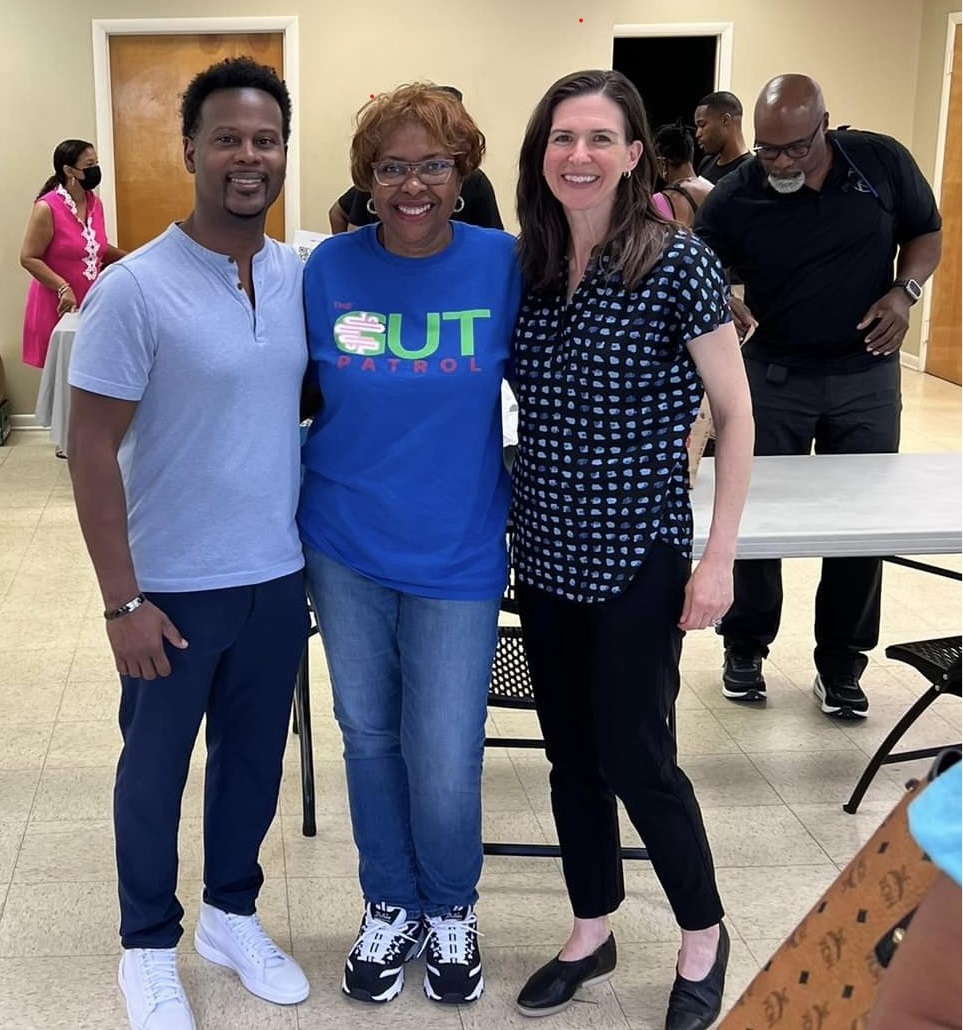
4 minute read
Dispelling Mistrust in Healthcare
Dr. Julius M. Wilder:
Featured Speaker at The Gut Patrol Health Symposium
By Gabriel Brown
Dr. Julius Wilder is the bridge between social justice and social science. The award winning physician leads studies that focus on diseases of the liver, gallbladder, and digestive system. His work also studies how societal factors affect a person’s health.
According to the American Cancer Society, more than 100,000 people were diagnosed with Colorectal cancer in 2023. The disease is the 3rd most common cancer in the United States. Despite a decrease in diagnoses in older populations, young and minority people have been on a steady incline since the 1990s. The National Institute for Health reports that African Americans have the highest incidence and mortality rate of colorectal cancer of any ethnic group in the United States. Some of these disparities can be attributed to access to care, screenings, ethnic diets, and genetics. Dr. Wilder’s work as a physician, professor, and researcher aids in the national fight to close healthcare disparities.
This work includes ensuring current and future research studies include populations most impacted by this deadly disease and improving health literacy interventions. At The Gut Patrol Health Symposium, presented by The Connection Place, Dr. Wilder discussed these disparities and what people can do right now to save their lives and the lives of their families. A healthy gut comes down to diet and exercise. Reducing sodium and processed foods in meals, as well as regular movement can slow down the deterioration of your gut.
Dr. Wilder said, “We need to discuss colon cancer in communities of color because we are disproportionately impacted by colon cancer. We are more likely to have colon cancer. Similarly, we are diagnosed later, which means the cancer is more advanced and harder to treat. Screening is an effective way to identify potential polyps and eliminate the lesion that can become cancer before it happens. We know that screening works and reduces death from colon cancer.”
He further stated, “Liver Cancer outcomes are worse in communities of color as well. This is complicated by the fact that many of the leading causes of liver cancer are more prevalent in communities of color. Especially hepatitis C. Communities of color need to make sure they have properly undergone screening for liver diseases such as hepatitis C. Furthermore, it is important that in the event that they have liver disease, people are seen by a specialist who can manage and monitor them for potential complications, including liver cancer.”
About Dr. Julius M. Wilder:
About Dr. Wilder: Julius Wilder, MD, PhD, is an Assistant Professor of Medicine at Duke University School of Medicine. He has an appointment with the Duke Clinical Research Institute and a secondary appointment with the Department of Sociology at Duke University. Dr. Wilder graduated with honors as a Meyerhoff Scholar from the University of Maryland Baltimore County before matriculating to Duke University School of Medicine, where he received the first MD, PhD in Medical Sociology in the history of Duke University. He then completed an internal medicine residency, a Gastroenterology fellowship, and a fellowship in Advanced Hepatology and Transplantation from Duke School of Medicine.
Dr. Wilder has a national reputation as an expert in Health Disparities, Health Equity, and Social Drivers of Health in Gastroenterology and Hepatology. He has authored several peer reviewed articles in journals such as JAMA, Hepatology, and Liver Transplantation. He is Chair of the Duke Department of Medicine Diversity, Equity, Inclusion, and Anti-Racism Committee, Vice Chief of Diversity, Equity, and Inclusion for the Duke Division of Gastroenterology, and is Co-Director for the Duke Community Engagement Research Initiative. He is a principal investigator on multiple clinical trials and has received research awards for his work on social drivers of disparities in gastroenterology and hepatology.
Health Monitor Network announced the creation and funding of the first of its kind Health Equity Patient Education Longitudinal Study, led by Dr. Wilder. The three-year study will examine how diverse populations respond to various patient-education tactics such as print, digital and video, with the goal of identifying the most effective methods and communication infrastructures for communicating relevant and important health information to diverse communities.

Katherine S. Garman, MD, MHS, Associate Professor of Medicine
Vice Chief for Research, Division of Gastroenterology
(Duke GI Tissue Repository)


We invite you to join The GUT Patrol Online Community on Facebook at https://www.facebook.com/groups/thegutpatrol.

